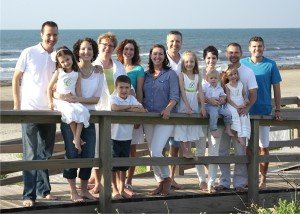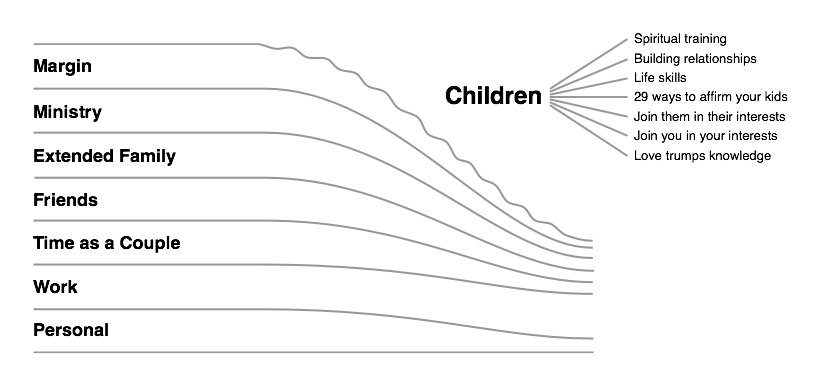Earlier this year, I had the opportunity to share with the men of Cypress Bible Church a presentation on finding a healthy balance in our family, work, and church responsibilities. The talk was a mix of biblical admonitions and life experience. As our five children have moved into adulthood, it has afforded us the chance to look back and reflect on where God has taken us as a couple and as a family over the past 35 years. Over the next several posts, I would like to continue the conversation started at the men’s breakfast and write about the experiences and principles that guided us as a way to encourage you on your own family journey.
 I have included a family photo to introduce you to the cast of characters. Rhonda and I started life together with a simple trust in seeking God’s voice and wisdom in building our marriage and raising our family. By God’s grace, we have been blessed by a family that loves and serves and is loyal to each other; a family that truly enjoys being together. There have been plenty of rocky ups and downs along the way, but God has kept us on a consistent path of growing closer to Him and closer to each other. In a way, the photo above is the goal. Not to be just like the Lehmans, but to find your own family identity and create your own family legacy. And the beauty of the process is that YOU CAN DO IT!
I have included a family photo to introduce you to the cast of characters. Rhonda and I started life together with a simple trust in seeking God’s voice and wisdom in building our marriage and raising our family. By God’s grace, we have been blessed by a family that loves and serves and is loyal to each other; a family that truly enjoys being together. There have been plenty of rocky ups and downs along the way, but God has kept us on a consistent path of growing closer to Him and closer to each other. In a way, the photo above is the goal. Not to be just like the Lehmans, but to find your own family identity and create your own family legacy. And the beauty of the process is that YOU CAN DO IT!
Now to get us started, I have a diagram designed to give you a visual on where we are going as we explore some of the keys to a healthy balance of family, work, and ministry in our service to the Lord.
The left side of the chart represents some of the ways we spend our time prior to having children. As we move to the right, we add children to the mix. With this new joy (and the busyness and time required that comes with it) the old areas of how we spend our time get squeezed. And we will dedicate several posts to how we are to manage this “squeeze”. We will also look at our new responsibility of children as much more than babysitting or child care. It is investing in your family legacy. The categories branching out to the right of “Children” show how we invest in our families.
With this short and simple overview as an introduction, we will dive into the nuts and bolts of each category starting with our next post. See you then.

